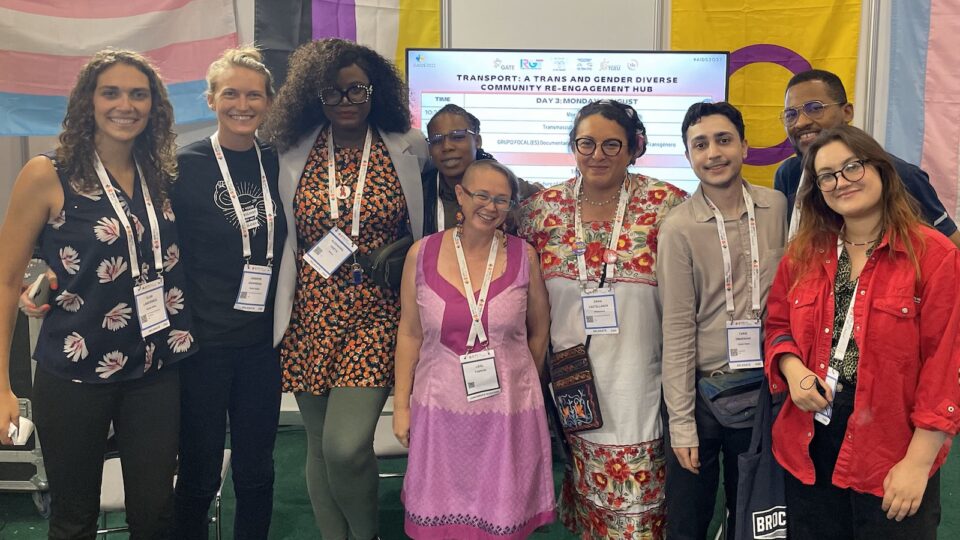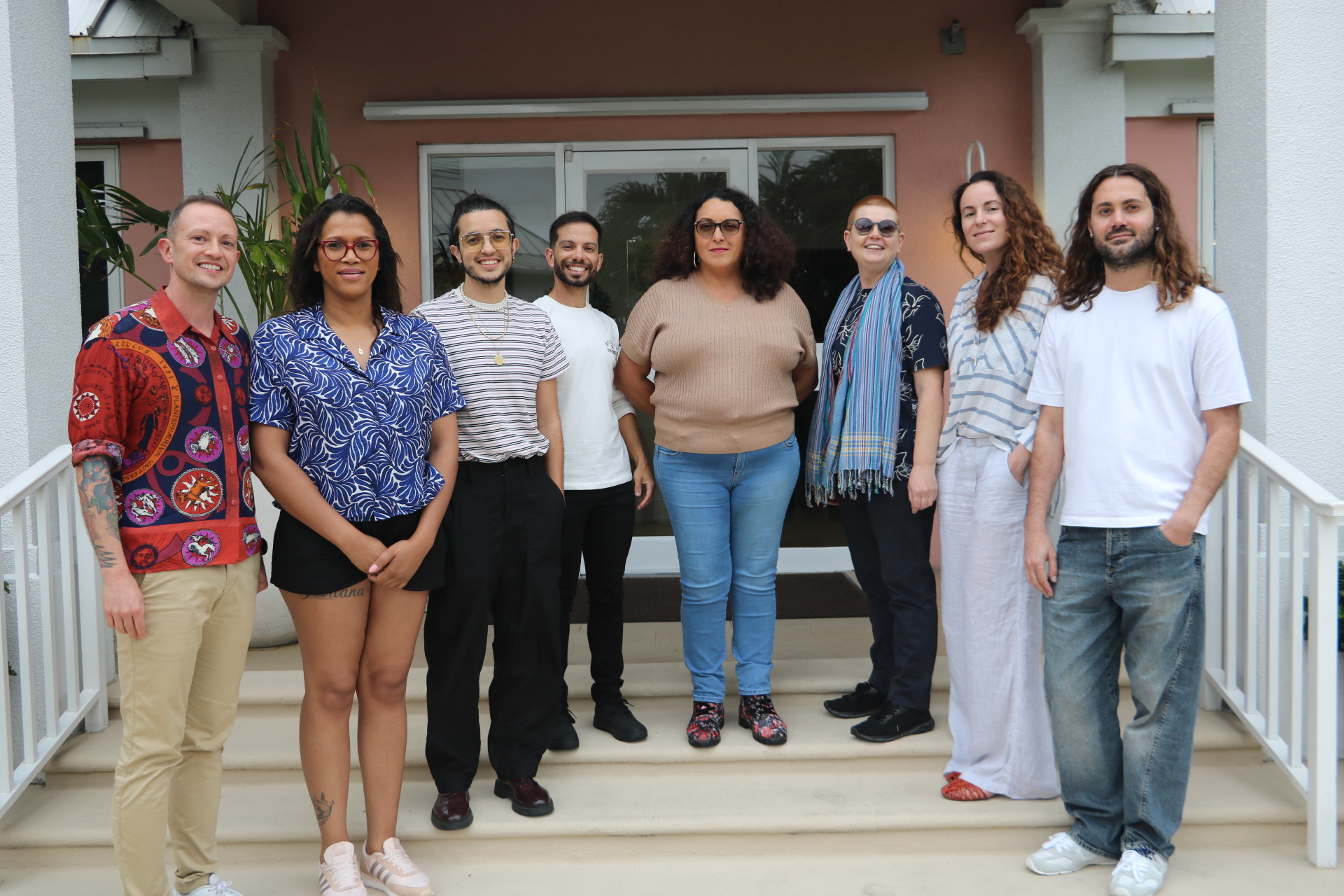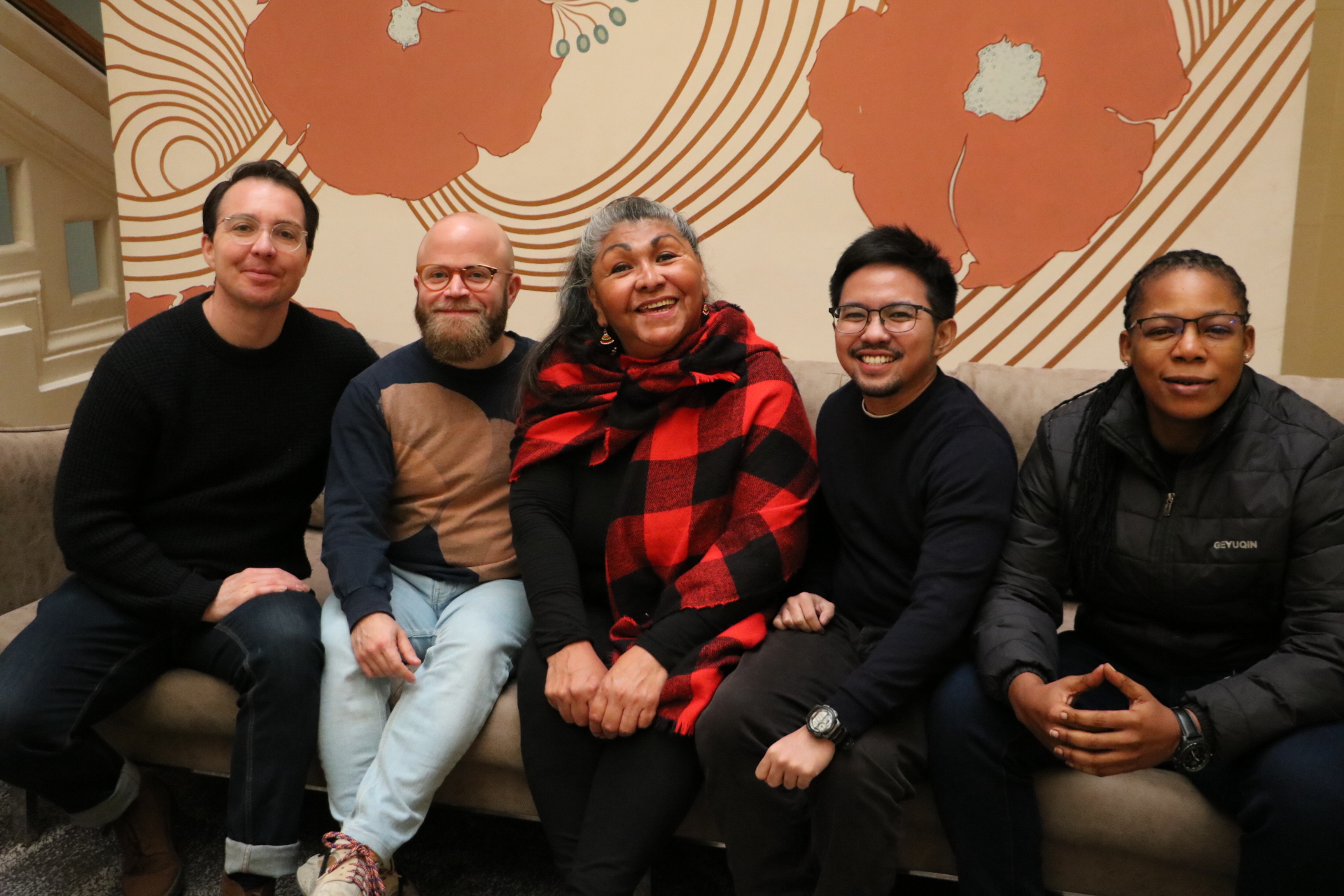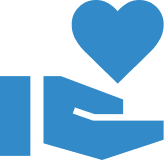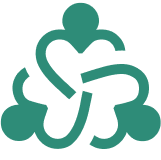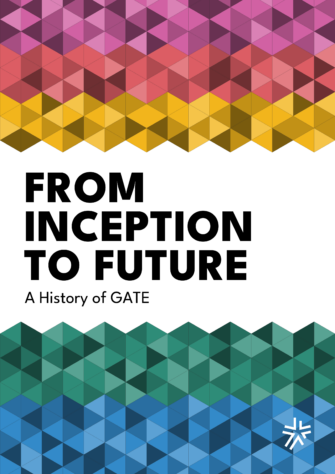Our Mission
GATE is an international advocacy organization advancing justice and equality for trans and gender diverse communities.
Our Vision
GATE envisions a world where trans and gender diverse people live with dignity, free from human rights violations, and enjoy full access to health and well-being.
Read more about our mission and vision in our Strategic Plan.
Our Team
GATE is a global organization with a fully remote team. We value diversity and make staff well-being a top priority, both in our team and in our Board of Directors.
Explore Our Work
GATE’s work is built on three main pillars. Explore what we do and see how we ensure financial sustainability. GATE is registered in the US as a 501(c)(3) nonprofit.
Key Milestones
2009: GATE is Founded
GATE was founded in 2009 by Mauro Cabral Grinspan and Justus Eisfeld to address the widespread exclusion of trans and gender diverse communities in the international human rights space.
2010: First Global Trans Convening
GATE hosted the first global convening of trans and gender diverse activists from 3-6 June 2010 in Barcelona, Spain.
2011: Engaging on Intersex Issues
GATE began to engage on intersex issues. For 12 years, GATE contributed significantly to strengthening intersex advocacy, participating in International Intersex Forums, engaging with global governance bodies including the UN and the Inter-American Commission on Human Rights (IACHR) on intersex issues, and serving as Senior Advisor to the Intersex Human Rights Fund. In 2024, GATE announced a decision to discontinue intersex programming.
2013: First Global Trans and Intersex Funding Research
GATE conducted the first collaborative research on The State of Trans and Intersex Organizing. The report revealed a deeply troubling lack of funding, which led to a series of meetings focused on addressing the need to increase the amount and accessibility of funding for trans and gender diverse groups. Later editions were published in 2017 and 2024 (forthcoming).
2015: Founding of the International Trans Fund
Following the meetings on trans funding, a challenging organizing process took place that resulted in the creation of a community-led funding mechanism, the International Trans Fund (ITF).
2016: GATE Registered Independently as a Non-Profit in the US
GATE achieved financial independence from fiscal sponsors by registering in the United States as a 501(c)(3) nonprofit organization.
2017: Hosting First UN Trans Advocacy Week & Drafting of YP+10
In an effort to coordinate trans advocacy at the United Nations, GATE co-organized the first UN Trans Advocacy Week at the Human Rights Council in Geneva. This initiative is held annually and is organized in collaboration with other global and regional organizations advocating for trans and gender diverse rights. GATE also contributed to the drafting of the Yogyakarta Principles Plus Ten.
2018: Global Trans Leadership in the HIV Response
GATE became the only member of the Communities Delegations to the Board of the Global Fund representing trans and gender diverse communities and became a vital member of the International AIDS Conference’s planning committee.
2019: Trans Identities Depathologized by WHO
Marking a significant victory in GATE’s advocacy efforts on depathologization, the World Health Assembly approved a new version of the International Classification of Diseases (ICD11) that no longer classified trans and gender diverse people as mentally disordered, an achievement comparable to the depathologization of homosexuality 29 years earlier in 1990.
2020: Creation of International Trans Men and HIV Working Group
GATE founded the International Working Group on Trans Men and HIV, focused on addressing the exclusion of trans men in the global HIV response. This led to the later development in 2023 of the Trans Men and HIV Policy Brief and Factsheet, supported by UNAIDS and UNFPA technical teams.
2020 – 2021: Responding to the COVID-19 Pandemic
In an effort to respond to the COVID-19 pandemic, GATE transitioned its workshops and trainings online, hosted virtual events to keep activists engaged in key processes, and provided financial support for internet access, personal protective equipment (PPE), and other basic needs.
2022: Launching of GATE Open-Access Training Platform
GATE Learning Hub was launched, an open-access online platform providing free training on organizational development.
2023: GATE Receives ECOSOC Status & Produces Global Anti-Gender Report
GATE achieved a significant milestone by receiving ECOSOC status, further solidifying its role in international advocacy. This status allows NGOs to participate fully in the UN system, empowering GATE to engage more effectively with UN mechanisms, participate in high-level dialogues, and influence global policies affecting trans, gender diverse, and intersex communities. In response to the growing anti-gender movement, GATE also conducted extensive research that resulted in global and regional reports of the impact of anti-gender opposition on trans and gender diverse organizing.
2024: Second Global Trans Convening
GATE hosted the second global trans convening, the Unite! Advocate! Thrive! Global Trans Conference, which brought together over 200 trans and gender diverse activists and key stakeholders from around the globe to address the critical need for trans and gender diverse-specific strategies and unified responses.
2025: GATE Launches Membership Structure
GATE launched a new membership structure at the start of 2025, with 148 member organizations representing 169 different countries joining in the first year. The membership structure is global and interconnected, supporting and empowering trans and gender diverse communities to enrich our global movement.
Discover Our History
GATE was founded in 2009 to address the widespread violence and discrimination faced by trans and gender diverse people. Many in our communities were being denied access to education, healthcare and legal rights – barriers made even worse by racism and poverty. Transition-related medical care (gender-affirming healthcare) was difficult to access, and many countries imposed humiliating requirements for updating name and gender on official documents.
Trans issues were often ignored by larger human rights and LGBTI organizations, leaving trans advocates without resource or support. GATE was created to change that. Our goal is to help trans activists gain the funding, skills and opportunities they need to make lasting change.
Since then, we’ve shaped our work by listening to trans communities around the world. We adapt to meet new challenges, from the COVID-19 pandemic to growing attacks on trans rights. In 2025, we introduced a membership model to strengthen connections between trans groups around the world, building a more united movement.




